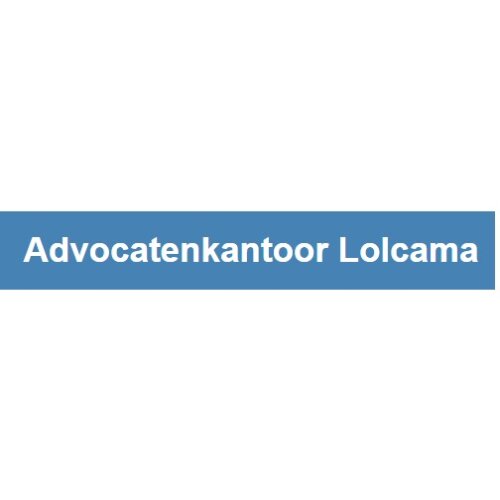Best Natural Resources Lawyers in The Hague
Share your needs with us, get contacted by law firms.
Free. Takes 2 min.
List of the best lawyers in The Hague, Netherlands
About Natural Resources Law in The Hague, Netherlands
The Hague, Netherlands, known for its rich cultural heritage and status as an international city, is also a hub for legal affairs concerning natural resources. Natural resources law in the Netherlands encompasses the management, protection, and utilization of resources such as water, minerals, energy, and land. In The Hague, which is a central location for government and international organizations, the regulation and governance of these resources ensure sustainable development and environmental protection. This field of law integrates various aspects including environmental, property, and administrative law, reflecting the Netherlands' commitment to balancing environmental concerns with economic development.
Why You May Need a Lawyer
There are several situations where individuals or organizations might require legal assistance in the field of natural resources in The Hague:
- Environmental Compliance: Ensuring that projects comply with environmental regulations and standards.
- Land and Resource Management: Handling disputes or negotiations related to the ownership, use, or development of land and natural resources.
- Permitting and Licensing: Navigating the complexities of obtaining necessary permits and licenses for resource extraction or development projects.
- Litigation: Addressing disputes that arise from natural resource activities, such as environmental damage or contractual breaches.
- Corporate Social Responsibility: Advising companies on sustainable practices and their legal obligations regarding natural resource use.
Local Laws Overview
The management of natural resources in The Hague is governed by several key pieces of legislation:
- The Environmental Management Act: This act provides a framework for environmental protection and requires environmental impact assessments for certain projects.
- The Water Act: It regulates water management, focusing on the qualitative and quantitative aspects of water use.
- The Spatial Planning Act: This act sets out the zoning regulations and land use planning to guide the development and preservation of space.
- The Mining Act: Governing the exploration and extraction of minerals, it ensures that activities are conducted in an environmentally responsible manner.
- The Flora and Fauna Act: Protects biodiversity by regulating activities that may affect plant and animal life.
The integration of these laws is essential for sustainable development and ensures that natural resource exploitation does not harm the environment or the rights of others.
Frequently Asked Questions
What are natural resources?
Natural resources include renewable resources such as sunlight, water, and winds; and non-renewable resources like minerals and fossil fuels found in nature.
Who controls natural resources in the Netherlands?
The Dutch government, through various ministries and local authorities, regulates the use and management of natural resources, balancing environmental conservation with economic interests.
What permits do I need for natural resource development?
Permits may include environmental impact assessments, land use permits, and resource-specific licenses, depending on the type and scale of the project.
How does The Hague address environmental concerns?
The Hague implements strict environmental regulations and policies focusing on sustainability and conservation to mitigate negative impacts on natural resources.
What is the role of local municipalities in resource management?
Local municipalities are responsible for implementing national regulations, issuing permits, and managing resources within their regions to ensure sustainable practices.
How can I resolve a natural resource dispute?
Disputes can be resolved through negotiations, mediation, or legal proceedings, depending on the nature and severity of the issue, often requiring legal representation.
What laws govern the protection of ecosystems?
The Flora and Fauna Act, among others, is crucial for protecting biodiversity and ecosystems, regulating actions that could affect them adversely.
Can foreign entities exploit natural resources in The Hague?
Yes, but they must comply with Dutch laws and regulations, including obtaining necessary permits and adhering to environmental protections.
What is an environmental impact assessment?
An environmental impact assessment (EIA) is a process that evaluates the potential environmental effects of a proposed project, required by law for significant developments.
Where can I find legal assistance for natural resource issues?
Legal assistance can be sought from specialized law firms or through legal aid services that focus on environmental and resource law.
Additional Resources
Here are some resources and organizations that can provide further assistance:
- Ministry of Infrastructure and Water Management: Oversees policies regarding water and environmental quality.
- Dutch Environmental Assessment Agency: Provides guidance on environmental assessments and policies.
- Netherlands Enterprise Agency: Offers support and information about resource management regulations and compliance.
- Local Municipalities: Offer specific information and assistance on local laws and regulations.
- Environmental NGOs: Such as Greenpeace Netherlands, can provide advocacy and guidance on sustainable practices.
Next Steps
If you require legal assistance in natural resources, consider the following steps:
- Identify the specific nature of your issue related to natural resources.
- Collect all relevant documentation and information regarding the matter.
- Consult with a legal professional specializing in natural resources law in The Hague.
- Contact local government offices or the Ministry of Infrastructure and Water Management for regulatory guidance.
- Consider alternative dispute resolution methods like mediation if applicable.
Whether you're dealing with compliance, litigation, or resource management, seeking the right legal advice is crucial for navigating the complexities of natural resources law effectively.
Lawzana helps you find the best lawyers and law firms in The Hague through a curated and pre-screened list of qualified legal professionals. Our platform offers rankings and detailed profiles of attorneys and law firms, allowing you to compare based on practice areas, including Natural Resources, experience, and client feedback.
Each profile includes a description of the firm's areas of practice, client reviews, team members and partners, year of establishment, spoken languages, office locations, contact information, social media presence, and any published articles or resources. Most firms on our platform speak English and are experienced in both local and international legal matters.
Get a quote from top-rated law firms in The Hague, Netherlands — quickly, securely, and without unnecessary hassle.
Disclaimer:
The information provided on this page is for general informational purposes only and does not constitute legal advice. While we strive to ensure the accuracy and relevance of the content, legal information may change over time, and interpretations of the law can vary. You should always consult with a qualified legal professional for advice specific to your situation.
We disclaim all liability for actions taken or not taken based on the content of this page. If you believe any information is incorrect or outdated, please contact us, and we will review and update it where appropriate.









